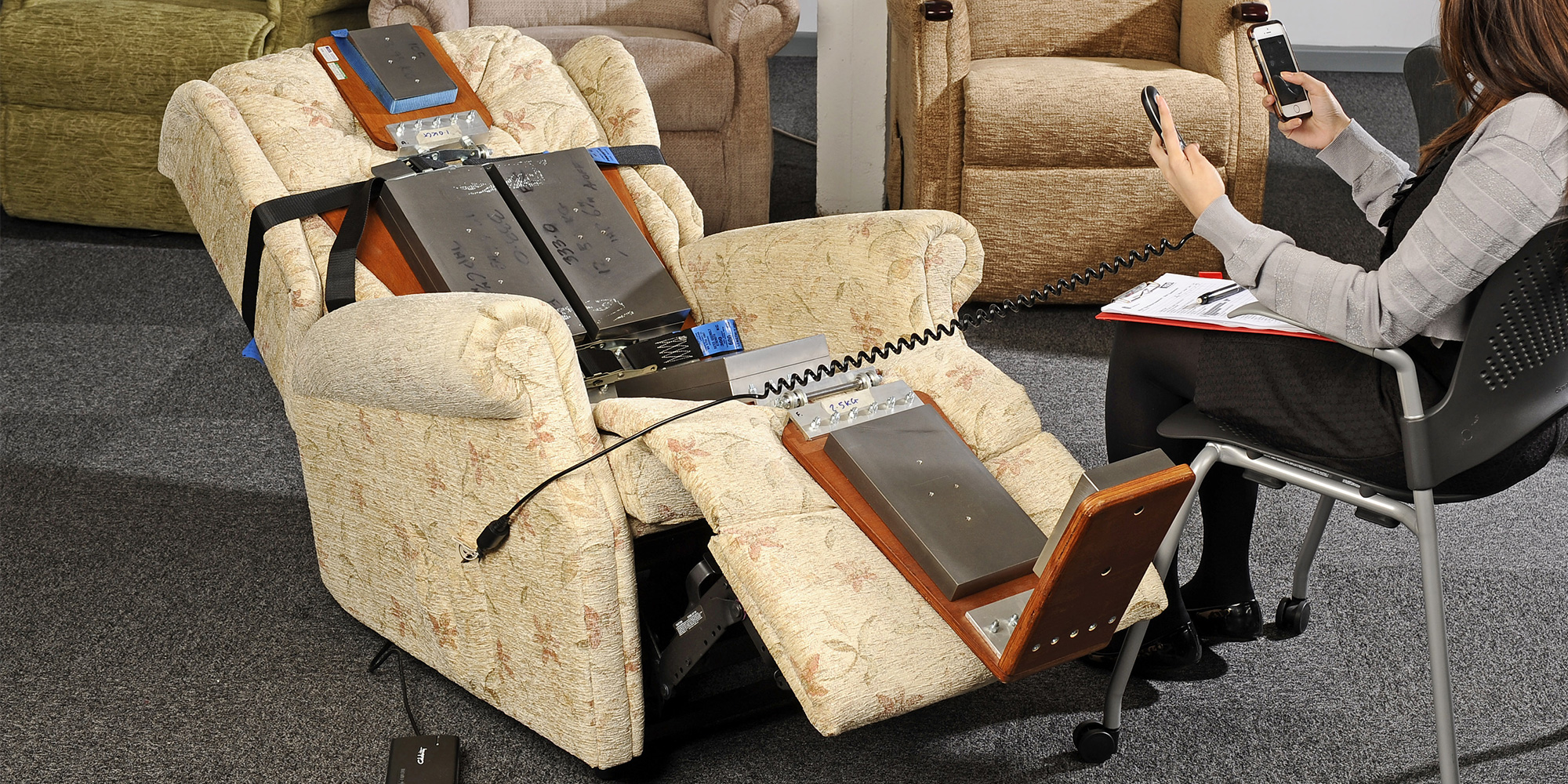ASTM D4060 Abrasion Resistance of Recliner Surface Coatings Testing
The ASTM D4060 standard provides a method to determine the abrasion resistance of surface coatings used on recliners and other similar furniture. This test is essential for quality managers, compliance officers, R&D engineers, and procurement professionals who need to ensure that the materials they choose can withstand the wear and tear associated with daily use.
The test simulates real-world conditions by using a rotating drum containing sandpaper which rubs against the specimen under controlled loads. The abrasion resistance is quantified by measuring the weight loss of the sample after it has been subjected to this simulated wear process. This method helps manufacturers and suppliers ensure that their products meet the required durability standards.
The test procedure involves preparing the specimen according to ASTM D4060 guidelines. Typically, a representative piece of the recliner's upholstery or fabric is cut into standard size pieces. These specimens are then conditioned in an environment controlled at 23°C ± 2°C and relative humidity of 50% ± 10%. Once conditioned, they undergo abrasion testing using a rotating drum containing a specified grade of sandpaper.
The test can be conducted with various loads to simulate different levels of usage intensity. For example, light-duty tests might use lighter loads, while heavy-duty tests could involve higher weights. The abrasion resistance is then measured by weighing the specimen before and after testing. If the weight loss exceeds a specified limit, it indicates insufficient abrasion resistance.
Understanding the results of this test is crucial for furniture manufacturers who want to ensure their products meet both internal quality standards and external regulatory requirements. By incorporating ASTM D4060 into their development process, companies can identify potential issues early in the design phase, preventing costly rework later on.
The industry has seen a growing trend towards more durable upholstery materials as consumers demand higher quality furniture that lasts longer. Testing standards like ASTM D4060 play an important role in meeting these demands by providing objective data to guide material selection and process improvements.
Industry Applications
| Industry Sector | Description of Application |
|---|---|
| Furniture Manufacturing | Determining the durability of upholstery materials used in recliners. |
| Consumer Goods | Evaluating fabric resistance to wear and tear for home use products. |
| Retail | Ensuring product quality meets customer expectations before final sale. |
Eurolab Advantages
EuroLab offers a comprehensive suite of services tailored to meet the needs of manufacturers and suppliers in various industries. Our state-of-the-art facilities provide accurate, reliable results that help ensure compliance with international standards.
We pride ourselves on delivering high-quality testing services using cutting-edge technology and experienced personnel. With our team of experts, we can offer personalized service for your unique requirements. From initial consultation to final report generation, our goal is to make the process as smooth and efficient as possible.
Our commitment to excellence extends beyond just meeting standards; it includes continuous improvement in all aspects of our operations. By staying up-to-date with the latest research and best practices, we ensure that our clients always receive the most accurate and relevant information available.
Use Cases and Application Examples
In the furniture manufacturing sector, testing abrasion resistance is critical for ensuring product longevity. For instance, a company developing a new line of recliners might use ASTM D4060 to assess how well their chosen fabric will hold up under normal usage conditions over time.
An example from the consumer goods industry would be a retailer wanting to verify that the fabrics used in their home decor products are durable enough for everyday use. By performing this test, they can rest assured knowing that their customers won't experience premature degradation of these items.





